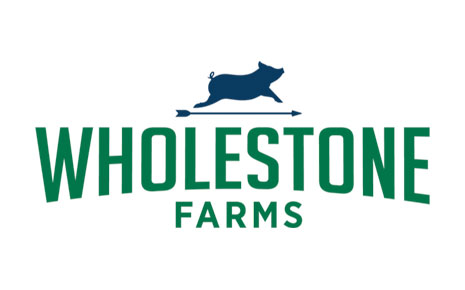

Source: KPVI
A Fremont pork processing plant will be able to add a second shift and double its capacity to 5.6 million pigs a year once the company completes a plant renovation and expansion under way, a company official said this week.
Wholestone Farms will be “one of the most modern, efficient pork plants, not only in the U.S. but the world,” said Luke Minion, interim chief executive officer and board chairman.
Wholestone Farms, which is owned by 200 farmers in several midwestern states, has been renovating the plant since acquiring it from Hormel in 2018
A $25 million federal grant, announced last week, will pay a portion of the costs. Minion said his company is grateful for the grant. He said the total costs of the project are “well above” the grant amount. For comparison, he said, a new plant can cost $500 million.
The company’s goal is to restore the plant to “like-new status,” he said.
“That includes a number of projects: a new wastewater treatment plant that’s completed already; a rendering facility, which is just about completed…; a brand-new what we call cut floor, which will be finished in September,” he said. “A whole bunch of things.”
Currently, the Fremont plant has about 1,300 employees and can process about 11,000 pigs a day with an eight-hour shift, he said. In a year, that’s about 2.8 million pigs, he said.
Once the construction is done, the plant will be able to run 16 hours a day, adding a second shift and raising the annual capacity to roughly 5.6 million pigs a year.
The plant would add between 800 and 1,000 employees, he said.
Minion said he’s confident that with some planning the company can staff the second shift from within the area.
During the COVID-19 pandemic, the plant remained open, and currently it doesn’t have a staffing problem, he said.
“This facility has been in this town for a very long time,” he said. “And so there’s a lot of people familiar with this work, familiar with this workforce, and now the facility is really all new and so it’s a great place to work.”
Minion said consumers should start seeing the Wholestone Farms brand more often in the retail market.
From 2018 to 2021, Wholestone Farms sold all of its products from the Fremont plant to Hormel. So people would have been buying Wholestone Farms pork with the Hormel label, he said. In 2022, the company started selling to others in addition to Hormel.
In January, for the first time, the company started putting the Wholestone Farms label on retail products, Minion said.
“You’ll see Wholestone Farms in grocery stores, all across the Midwest and across the United States, and that customer list is growing for us here, and we’re pretty excited about that,” he said.
The grant was awarded through the U.S. Department of Agriculture’s Meat and Poultry Processing Expansion Program.
According to the USDA, the program provides grants to help eligible processors expand their capacity.
USDA Rural Development, it said, designed the expansion program to “encourage competition and sustainable growth in the U.S. meat processing sector, and to help improve supply chain resiliency.”
Minion said per-capita pork consumption hasn’t changed much in the U.S., so the demand domestically has been flat, other than increases for a growing population. But exports have been growing for many years, he said.
He said that there have been discussions in the industry about whether the pork supply chain in the United States is concentrated in too few owners.
“The big four that own over 85% of the U.S. pork supply chain are not farmer-owned,” he said. “So it’s not only expansion of capacity. It’s expansion of capacity along with diversifying who’s in control of the pork supply chain.”
Fremont Mayor Joey Spellerberg said Wholestone Farms has been a good corporate partner.
“It’s been tremendous to see their growth and commitment to Fremont,” he said.
He said the Wholestone Farms expansion hasn’t stirred controversy the way a Costco chicken plant did a few years ago.
“Agriculture is our strength,” he said.
Wholestone Farms took over a plant that was there for decades and invested hundreds of millions of dollars in it, he said.
For the most part, he said, everybody in Fremont wanted to get behind that.
“The last thing that we wanted to do in Fremont was to shut the plant south of town,” Spellerberg said. “I think that we understand our strengths. We also understand the opportunities that these companies give to the people that are around the Fremont community and the businesses that support them.”




